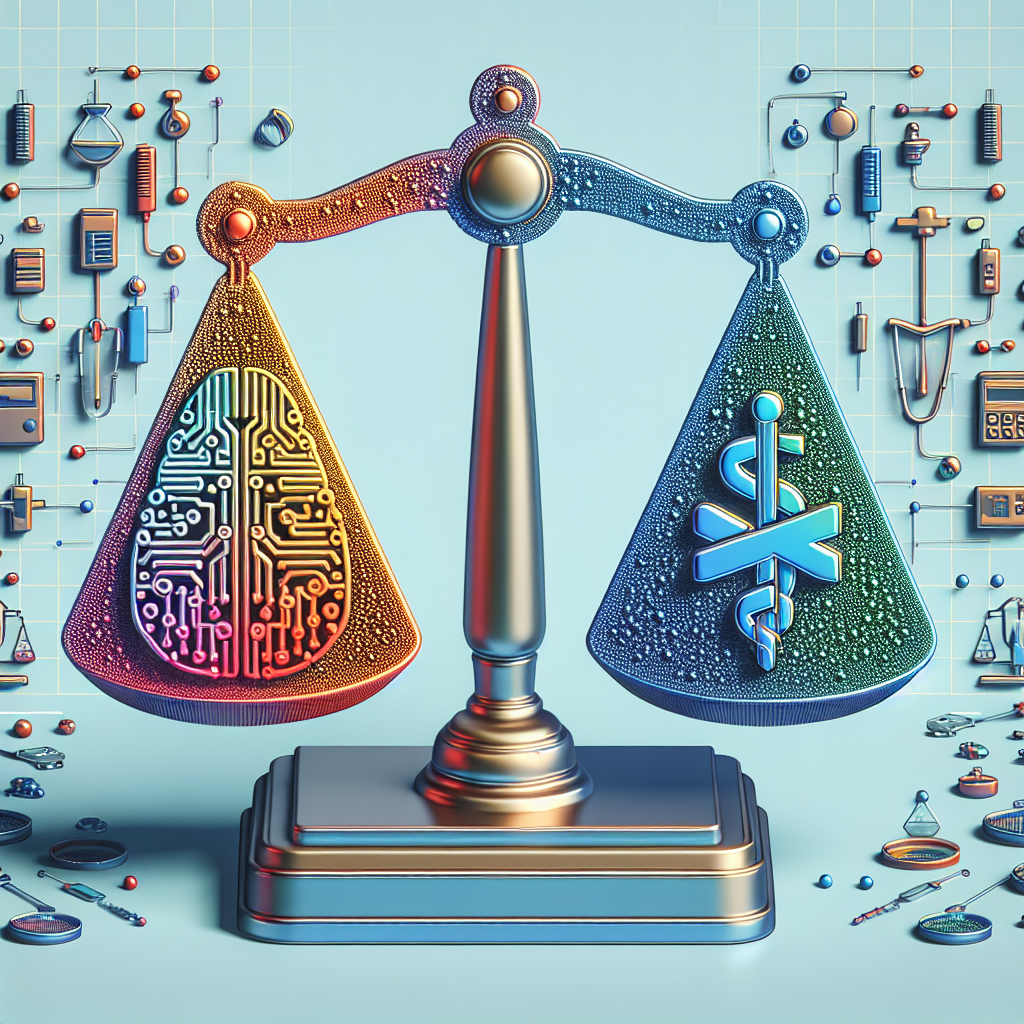Artificial Intelligence (AI) has been rapidly transforming industries across the globe, and healthcare is no exception. With the integration of AI technologies into healthcare systems, there has been a significant impact on health equity. Health equity refers to the concept of everyone having a fair opportunity to attain their full health potential, regardless of their social or economic status. AI has the potential to bridge the gap in healthcare disparities and improve access to quality care for all individuals. In this article, we will explore the various ways in which AI integration is impacting health equity and address some frequently asked questions about this topic.
1. Improving Access to Care:
One of the key ways in which AI is impacting health equity is by improving access to care for underserved populations. AI technologies can help in remote monitoring of patients, providing virtual consultations, and facilitating telemedicine services. This is particularly beneficial for individuals living in rural areas or low-income communities who may not have easy access to healthcare facilities. By leveraging AI, healthcare providers can reach a larger number of patients and provide timely and efficient care, thereby reducing disparities in access to healthcare services.
2. Enhancing Diagnosis and Treatment:
AI technologies such as machine learning algorithms and predictive analytics have the potential to revolutionize the way diseases are diagnosed and treated. These technologies can analyze vast amounts of medical data to identify patterns and trends that may not be apparent to human healthcare providers. This can lead to earlier detection of diseases, more personalized treatment plans, and improved outcomes for patients. By leveraging AI for diagnostic purposes, healthcare providers can ensure that all patients receive timely and accurate diagnoses, regardless of their background or socioeconomic status.
3. Promoting Preventive Care:
Another way in which AI is impacting health equity is by promoting preventive care and wellness initiatives. AI-powered tools can analyze an individual’s health data and provide personalized recommendations for lifestyle changes, screenings, and preventive measures. By empowering individuals to take control of their health and well-being, AI can help in reducing the incidence of chronic diseases and promoting overall health equity. This is particularly important for individuals from marginalized communities who may be at a higher risk for certain health conditions due to factors such as poverty, lack of education, or limited access to healthcare resources.
4. Reducing Bias in Healthcare:
One of the challenges in healthcare delivery is the presence of bias and discrimination, which can lead to disparities in treatment and outcomes for certain populations. AI has the potential to address this issue by reducing bias in decision-making processes. By using data-driven algorithms, AI can ensure that healthcare decisions are based on objective criteria rather than subjective biases. This can help in promoting fairness and equity in healthcare delivery, ensuring that all individuals receive the same standard of care regardless of their race, gender, or socioeconomic status.
5. Enhancing Healthcare Efficiency:
AI integration in healthcare systems can also lead to improvements in efficiency and cost-effectiveness. By automating routine tasks, streamlining administrative processes, and optimizing resource allocation, AI can help healthcare providers deliver care more efficiently and effectively. This can result in cost savings that can be reinvested in improving access to care for underserved populations. By leveraging AI technologies, healthcare organizations can ensure that their resources are used in a way that maximizes health equity for all individuals.
Frequently Asked Questions (FAQs):
Q: How can AI help in reducing healthcare disparities?
A: AI can help in reducing healthcare disparities by improving access to care, enhancing diagnosis and treatment, promoting preventive care, reducing bias in healthcare, and enhancing healthcare efficiency. By leveraging AI technologies, healthcare providers can ensure that all individuals receive timely and quality care, regardless of their background or socioeconomic status.
Q: Are there any challenges to integrating AI in healthcare systems?
A: Yes, there are challenges to integrating AI in healthcare systems, including concerns about data privacy and security, regulatory compliance, ethical considerations, and the need for healthcare providers to be trained in using AI technologies effectively. It is important for healthcare organizations to address these challenges proactively to ensure the successful integration of AI in healthcare delivery.
Q: How can individuals benefit from AI integration in healthcare?
A: Individuals can benefit from AI integration in healthcare by receiving timely and accurate diagnoses, personalized treatment plans, preventive care recommendations, and improved access to healthcare services. By leveraging AI technologies, individuals can take control of their health and well-being and receive the care they need to achieve their full health potential.
In conclusion, the integration of AI in healthcare systems has the potential to significantly impact health equity by improving access to care, enhancing diagnosis and treatment, promoting preventive care, reducing bias in healthcare, and enhancing healthcare efficiency. By leveraging AI technologies, healthcare providers can ensure that all individuals receive the same standard of care, regardless of their background or socioeconomic status. It is important for healthcare organizations to address the challenges of AI integration proactively and ensure that these technologies are used in a way that promotes fairness and equity in healthcare delivery.

